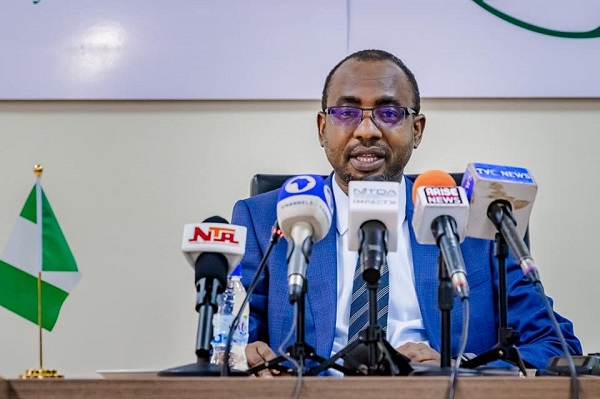
The National Information Technology Development Agency (NITDA) and the Federal Ministry of Education (FME) have partnered to enhance Nigeria’s digital literacy curriculum.
This collaboration aims to equip students with the skills needed to thrive in the increasingly digital economy. The partnership is part of a broader initiative to align education with the country’s digital transformation goals.
Director-general of NITDA, Mallam Kashifu Abdullahi spoke about this partnership during the 68th National Council on Education (NCE) meeting. He highlighted the mandate given to the Ministry of Communications, Innovations and Digital Economy, emphasising the importance of digital literacy in Nigeria’s development. “Achieving this mandate requires collaboration with the Ministry of Education,” Abdullahi said, adding that the partnership aligns with the federal government’s vision of preparing citizens for the digital economy.
Abdullahi stressed that while technology plays a crucial role in improving lives, people are the drivers of technology. “The human component of technology is critical—skills and talent. Our goal is to upskill the Nigerian workforce so citizens can both consume and create technology effectively,” he said. The digital literacy curriculum aligns with NITDA’s Strategic Roadmap and Action Plan (SRAP) 2.0, which targets 70 per cent digital literacy by 2025 and 95 per cent by 2030.
As part of this effort, NITDA has developed a Digital Literacy Framework (DLF), which integrates digital literacy into Nigeria’s formal education system. Abdullahi explained that the curriculum, currently under review, is expected to be approved at the council meeting, marking a significant step toward achieving a digitally literate nation. The framework is designed to prepare students for the demands of the 21st-century workforce by equipping them with essential digital skills.
In addition to curriculum development, NITDA has committed to upscaling training for citizens outside formal education systems. This broader approach aims to foster digital fluency, enabling Nigerians to navigate and utilize digital tools more effectively. “The federal government’s goal is clear: to increase digital fluency and build a workforce capable of driving the nation’s digital economy,” Abdullahi said.
He also highlighted the importance of human capital development for positioning Nigeria as a leader in the global digital economy. NITDA’s focus on training citizens in digital literacy and related skills is expected to harness the full potential of the country’s human resources. “By investing in talent development, we can ensure Nigeria remains competitive in the global digital landscape,” he added.
To achieve these ambitious goals, NITDA is collaborating with various stakeholders, including educational institutions, private sector players and international partners. These partnerships aim to create opportunities for knowledge exchange, capacity building and access to new markets, ultimately enriching Nigeria’s digital ecosystem.
As Nigeria embarks on this transformative journey, NITDA’s efforts are aligned with the broader goals of the Ministry of Communications, Innovations and Digital Economy. “Technology improves lives, but people enhance technology,” Abdullahi said, emphasising the importance of investing in human talent. Through this collaboration, Nigeria aims to cultivate a generation of tech-savvy citizens who can contribute to national development and global digital innovation.


